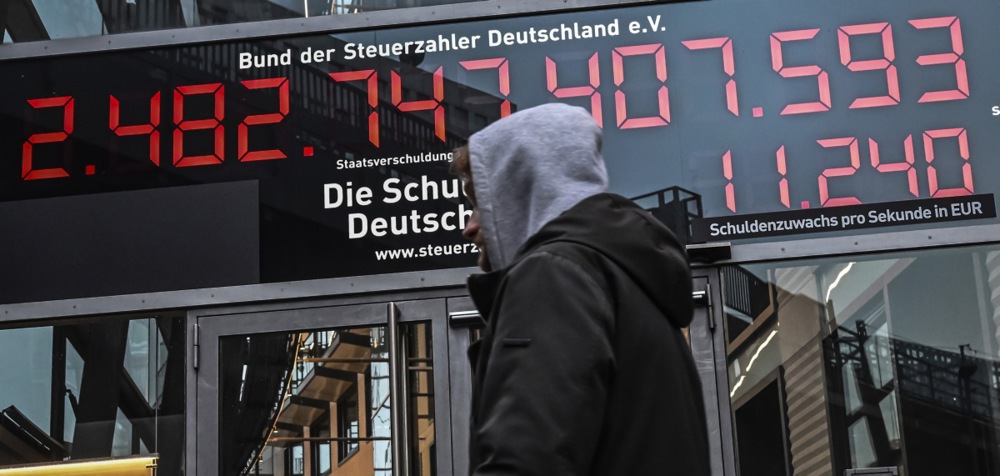German economy minister Robert Habeck (Greens) is under pressure after announcing new subsidies for the digital gaming sector, despite the country’s budget problems.
The German gaming industry is one of the biggest markets in Europe and top developers such Crytek (Far Cry series) and Blue Byte (Anno series, The Settlers) have been growing, next to a thriving mobile gaming studios’ output.
According to Games Industry.biz, Germans spent close to €10 billion on games last year – outperforming both the music and movie industry – with the government having also lavishly subsidised the gaming sector.
More than €200 million in taxpayers’ money has been directed to the gaming industry in the past five years. Given current the tight national budget and tense debates over support for the industry, the traffic-light government has now been forced to reduce its subsidy policy.
In late 2023, the Bundestag’s budget committee approved €100 million for German game developers from 2024 to 2026, allocated through Federal Culture and Media Commissioner Claudia Roth’s (Greens) budget.
That funding has not yet been implemented because less money is available, German TV broadcaster ZDF reported. A freeze on new funding applications has been in effect since May last year. Funds are now allocated solely to previously approved, multi-year projects.
Now, citizens have been scrutinising the money already spent. In the long list of games that have received money, some have singled out games that appear underwhelming.
Das ist echt. https://t.co/LxEEubGE1O pic.twitter.com/ufV06YfFjL
— Lutz Olaf (@LutzOlaf) August 22, 2024
One example cited was the game Modern Snake, a version of the popular 1976 game that had already been rebranded for Nokia phones in the 1990s.
While the description on Habecks’ website called it “a modern and attractive variant” of the browser game, developed in HTML 5, gamers felt it looked ugly, saying its graphics could have been the drawings of a 5-year-old.
HTML 5 was the fifth and final major HTML version that has been retired. The current specification is known as the HTML Living Standard.
Despite Modern Snake receiving a lukewarm reception, Habeck had reportedly given the developers more than €176,000.
According to its financial reporting, the developers only started to make a profit once government funding came in.
Another expenditure under the microscope was the almost €300,000 that went to the development of a flight simulator game with the not-so-original title Flight Sim.
“Although the graphic style is kept simple, a realistic physics simulation is used to give the game a high degree of realism”, the description on the minister’s website read.
kann mir keiner erzählen, dass das nicht einfach nur Geldwäsche ist pic.twitter.com/ZdkJTrRXBp
— jns_fchs (@FchsJns) August 22, 2024
Online commentators thought otherwise.
Last year’s Oktoberfest Game, which does not appear to have hit home with the intended beer-gulping target audience, received more than €1 million.
Angry Dynomites Lab, which has the look of a game from the early 1980s, was given more than €500,000. Archer Defence, which does not boast great graphics either, got subsidised to the tune of more €174.000
According to some in the gaming fraternity, the games are unoriginal, basic “flash” offerings, comparable to so-called “bubble shooters”, and hardly a safe bet for future financial success.
Not all games were regarded so poorly, though. For example, developers of the new instalment of the highly successful Anno series, Anno 117: Pax Romana, received €5 million, and Tropico 6 close to €1 million. These could prove solid investments but some have questioned whether it is up to the German Government to fund entertainment products that do well in the free market anyway.
Some have also speculated that political influence might have played a role as well. For instance, the company behind Modern Snake also develops HTML5 games for Le Monde, the French newspaper.
Coincidently, Gamescom, the annual video game trade fair, is taking place in Cologne. On August 21, during the opening speech, Habeck announced what he said were the key points of his government’s games funding programme.
He announced tax breaks for developer studios from 2025. “That would mean that more games would be produced in Germany and more companies would come to Germany. … And that’s exactly where we want to go: Let’s go!” Habeck said.
That did not sit well with the Liberal Free democratic Party (FDP) which pointed out that more than €200 million in funding had been given to the industry during the past five years.
Just after Habeck’s opening speech at Gamescom, a spokesman for finance minister Christian Lindner stated: “The strengthening of Germany as a games location intended by the Federal Government’s growth initiative does not necessarily require tax incentives by means of ‘tax credits’.”
Citing budget restraints, the German government will spend €2.4bn less on subsidies for installing heat pumps next year — a controversial and costly cornerstone of Germany’s transition to an emission-free future. https://t.co/Z2dBubk6wE
— Brussels Signal (@brusselssignal) August 20, 2024





